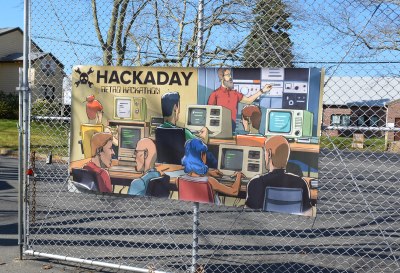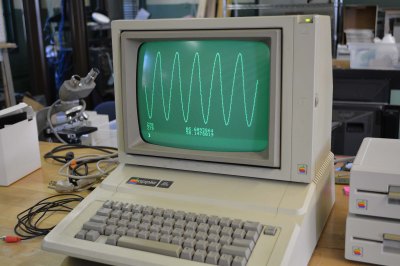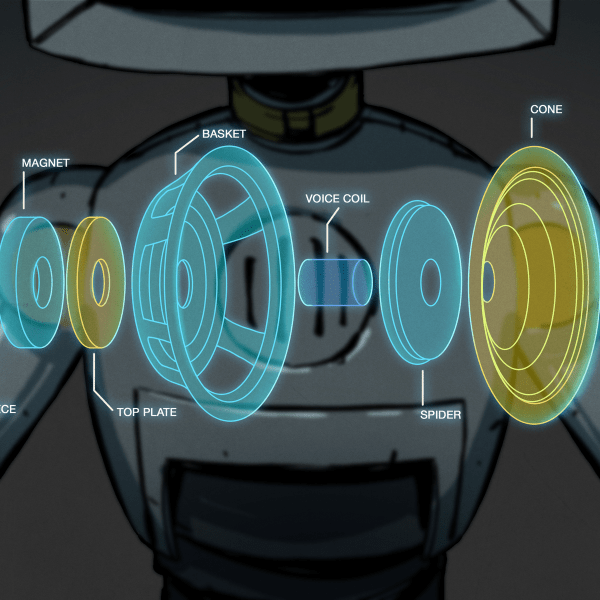
This weekend is the Vintage Computer Festival East in Wall, New Jersey. Every year is different, but there’s a general plan for each day. On Saturday and Sunday, the exhibits rule the con, the consignment shop is busy, and the keynotes bring down the house. Friday is a little different. This is the day for ‘in the trenches’ talks from the commodore crew, classes on recapping 30-year-old computers, and this year – for the first time – a retro hackathon. It’s basically the same format as any other hackathon, but instead of bringing MacBooks and building something cool, Apple IIs and Commodore 64s were provided. This is the report on the first retro hackathon we’ve ever been to.

First off, no one remembers how to program in BASIC. If you’re looking for a population that should remember the vagaries of the different dialects of BASIC, you would think it would be the people who came out to the middle of Jersey on Friday to talk about old CPUs. Apparently, this is not the case and several people were confused about single and double quotes in PRINT statements. Luckily, a few programming manuals for the C64 and Apple II were available, so everyone could still have fun with PEEKs and POKEs.
If you want to get people programming on some old machines, you need to give them some inspiration. The first half hour of the retro hackathon didn’t see any teams programming. Given this demographics proclivity to say, ‘I can do that better’, I typed a few BASIC one-liners in the C64 (random Truchet tiles in PETSCII) and Apple II (a SIN graph), and the people started pouring in. Yes, they could program something better than a single line of BASIC.
What came of an impromptu retro hackathon? Hangman, in BASIC. No, it didn’t quite work, and there were only three or four possible words hardcoded into the program. Still, text mode graphics are a lost art. The Apple IIc was programmed to make fart noises. The original plan for this project was to program music. What would have been the winning entry was a line-drawing program on the C64 that looked like the enemy in Qix. That guy wasn’t there during judging. The winner of a $50 credit to the consignment shop was a kid who programmed zero-player Pong on Apple II basic. He bought a Mac Portable (non-backlit) with that prize.
We’ve gone to hackathons, we’ve waded through the sea of MacBooks, and had a Red Bull drip installed. This retro hackathon was completely different, but somehow familiar. No, no one is going to create something new – everything that can be done on these machines in a few hours of BASIC programming has already been done. That’s not the point, though. It’s a geek pride of proving your mettle, putting your money where your mouth is, and doing it in a casual environment where everyone is friendly. This is the first retro hackathon we’ve gone to, and it won’t be the last. We’re going to do this again, once we get an Apple IIc+, a few Commodores, a Speccy, and a few good monitors. We already have the banner, anyway.





















“It’s a geek pride of proving your mettle, putting your money where your mouth is, and doing it in a casual environment where everyone is friendly.”
That’s the best part. If you’re there to win it’s not going to be fun. If you’re there to have fun, you end up being a lot more creative.
I love the fact that on those old machines you had complete control of the hardware, while today OSes often force you to jump through the hoops to activate an i/o pin. Also, if you needed some specialized software, you had to write it yourself. That was a steep learning curve.
I agree. It is SO cool to be able to control the entire machine! I started out with PDP-8. There everything was controlled by the user.
We need an online retro computer hackathon (HACKaDon). There are plenty of emulators for those who don’t have working retro hardware. We could upload code BASIC or whatever.
What would be fun is to get a bunch of 80’s micros that had connectors or ports labeled in the catalogs and specifications “for future use”. It was a future that never came, thus those ports and plugs never had anything made for them.
It’s the future. Time to make use of those “for future use” connections.
I remember adding a SP0256 speech chip to the printer port of a CPC6128 and being surprised that it had an American accent.
Maybe for the next Vintage Hackathon, you might ask some of us ahead of time for documentation on things like BASIC. Some of us old guys (I’m 55) still have a Tandy 100 and Tandy 200 with all of the books. Others might have Apple programming books. There are many people on Hackaday that would be willing to contribute something.
Some years back at a HOPE conference (pretty sure it was number nine, but I’m not certain), someone left a bunch of 8-bit PCs around the tables on the mezzanine floor, connected to TVs and everything. Just sitting there, ready to do whatever. My eyes immediately settled on a TI-99/4A, my first computer when I was little.
It had been maybe 20 years since I wrote any TI BASIC, but serendipitously, the syntax quick-ref card was underneath the machine, and that gave me all I needed for the CALL SOUND and CALL KEY routines, which were really the only quirky bits. Armed with a quick glance at a DTMF chart and some other material, I banged out a 16-digit tone-dialer with every feature I could think of: Immediate mode, dial string mode with pauses, redbox (Quarter and Nickel coins; the “D” key was already used for DTMF) function, and adjustable digit twist (the relative loudness of the row vs column tones in DTMF) just for excess. I enjoyed a good giggle that the language came back to me so quickly, and walked away.
Many hours later I wandered through the mezzanine again and checked on the 99er. To my surprise and delight, not only was my program still running (nobody had reset the machine!), but the screen was full of dial strings scrolled up indicating use, and as I stood there for a moment, a slightly-younger phreak came trotting back to the machine, a friend in tow, explaining “no no check it out, somebody wrote this! it’s like that dialer from the article, but in software on this old machine!”.
So when you say “nobody remembers”, I’ll take that as a deliberate invocation of Cunningham’s Law. And an encouragement to get my ass to the next VCF. :)
Awesome.
I was intrigued by the tile pattern at the top of the article. I had never realized they had a name and that they were so easy to create (once you know what is going on) with so little code.
Cool – https://en.wikipedia.org/wiki/Truchet_tiles
Time to fire up SmallBASIC